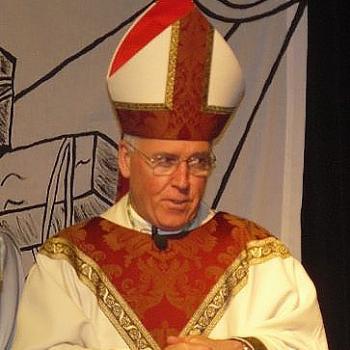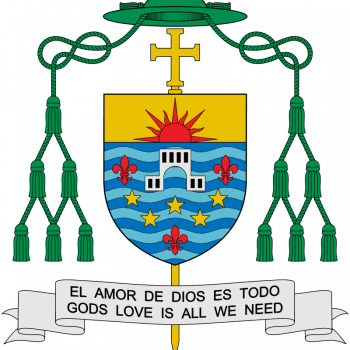One of the bishops who worked on that landmark document explains why it was not rewritten this year:
Four years after the bishops’ overwhelming approval of their teaching document “Forming Consciences for Faithful Citizenship,” key leaders of the U.S. Conference of Catholic Bishops did not feel that they needed to reinvent the wheel.
The document highlighting issues that should be considered by Catholics as they make election-year decisions “was well worked out in 2007,” said Bishop Stephen E. Blaire of Stockton, Calif., chairman of the Committee on Domestic Justice and Human Development, in an Oct. 13 telephone interview with Catholic News Service.
“It was quite a challenge to come to a consensus and then bring it to the whole body of bishops, which had never been done before,” Bishop Blaire added. “It was hard fought and well thought out. Since it was a teaching document, we felt it was important to keep it intact.”
That decision was reached during “several meetings” involving nine committees — pro-life, migration, education, communications, doctrine, domestic justice, international justice and peace, cultural diversity, and laity, marriage, family life and youth, he said.
“It was definitely a general consensus that to reopen it would not have been helpful,” Bishop Blaire said.
But the committee chairmen decided to write a new introductory note pointing out that “‘Faithful Citizenship’ reflects the teaching of the bishops and that it is still a very important statement for use in the formation of consciences,” he said. “The issues contained in it were still very relevant and still quite appropriate and pertinent.”
At their June meeting near Seattle, Archbishop Timothy M. Dolan of New York, USCCB president, asked the bishops in executive session whether they concurred in that approach and the response was positive, Bishop Blaire said.
“We decided in the note to lift up the issues that had been in our thinking and on our agenda in these last years, so we did that,” he added. “And we wanted it to be clear that this document was not a voters’ guide, but a teaching document for the formation of consciences.”











